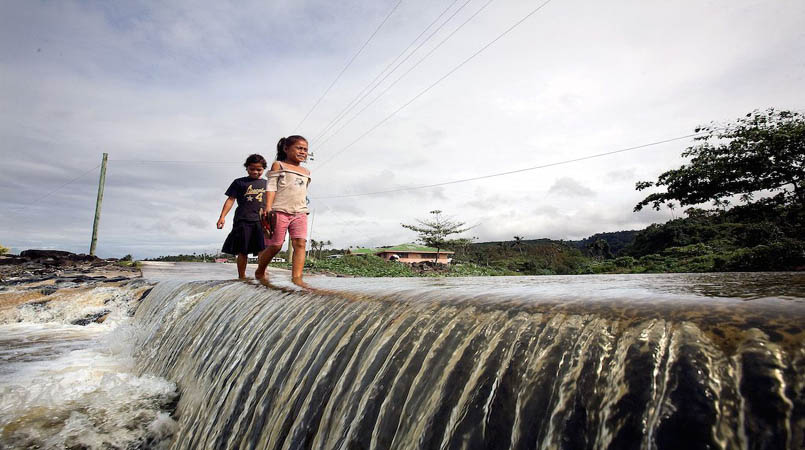
The Asian Development Bank says larger Pacific governments are facing lower growth and tighter fiscal conditions sparked by low commodity prices.
The ADB’s latest Pacific Economic Monitor launched on Monday says other countries in the region are benefitting from strong growth in tourism and fishing license revenues.
The report covers 2015 fiscal outcomes and 2016 budget plans in the Pacific. It analyzes the challenges facing the region, including El Niño-induced droughts that have caused significant losses in agricultural production and depleted fresh water supplies in some areas.
“Besides the fiscal challenges faced by Pacific economies, we must also closely monitor the impacts of ongoing extreme and varied weather patterns,” said Xianbin Yao, Director General of ADB’s Pacific Department. “ADB stands ready to assist in mitigating the risks of fiscal shocks, as well as the potential impacts of El Niño, on livelihoods and health outcomes across the region.”
Among the larger, commodity-based economies, the report highlights the challenges that Papua New Guinea (PNG) faces in financing its 2016 budget deficit. Timor-Leste needs to address escalating long run fiscal concerns driven by pressure to maintain public investments to propel its development, even as low oil prices exacerbate the revenue impacts of declining production in the Bayu-Undan field.
The report notes that PNG has been severely affected by El Niño-related extreme weather events, experiencing heavy rains in March 2015 (estimated to have caused $36 million in damage to infrastructure and agriculture) followed by a drought. Fiji, Solomon Islands, Tonga, and Vanuatu have faced similar impacts from El Niño. While climate extremes have had mostly negative effects on the region, weather-induced changes in the migratory routes of some fish species have resulted in transitory increases in fishing license revenues for some countries.
The report also notes that many countries are benefitting from strong growth in tourism, with visitor arrivals in Fiji up by over 9% in the first 3 quarters of 2015. Palau continues to see a surge in the number of tourists from the People’s Republic of China, despite efforts to slow growth in arrivals in response to concerns about carrying capacity.
